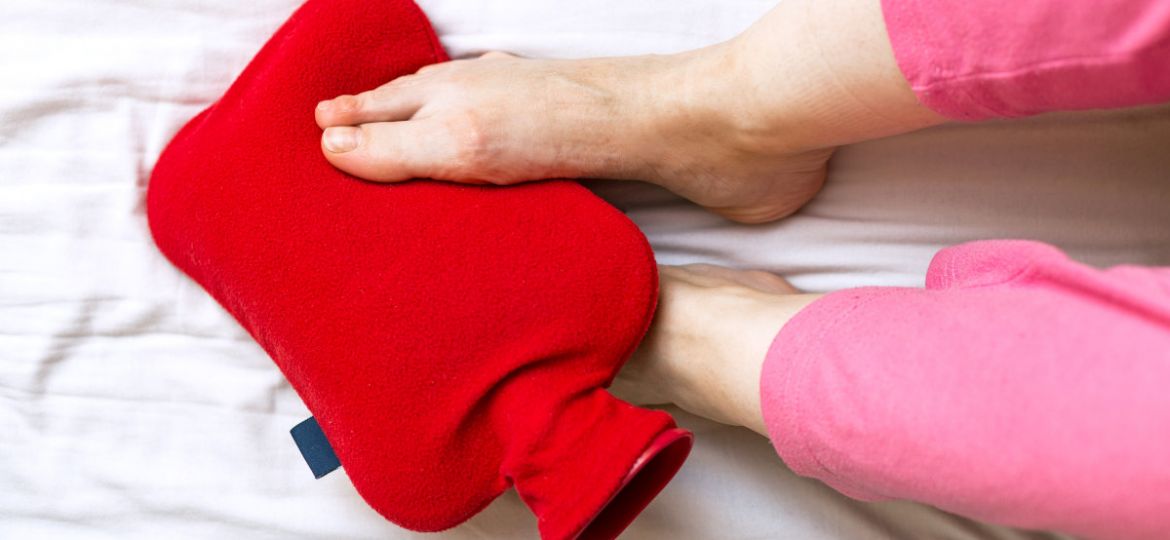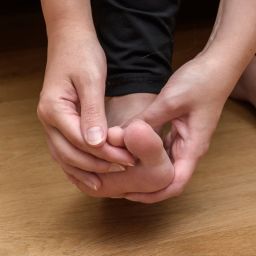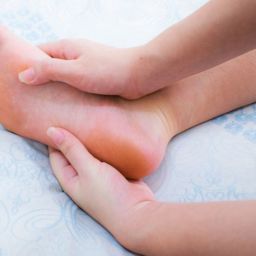
Many people experience cold feet at night, and while it might seem like a minor inconvenience, it can sometimes be a sign of underlying health issues. The sensation of cold feet often relates to how efficiently your blood vessels circulate red blood cells throughout your body. Conditions like peripheral artery disease (PAD) and peripheral neuropathy can restrict blood flow, leading to chilly extremities. Understanding the connection between these conditions and why your feet feel cold is essential for finding relief and ensuring your overall health. In this blog, we’ll explore the causes of cold feet at night and what they might reveal about your circulatory and nervous systems.
Let’s Understand Causes of Having Cold Feet at Night
By exploring these potential causes, you can better understand why your feet feel cold and take appropriate steps to seek relief and improve your overall well-being.
- Poor Circulation: Reduced blood flow due to constricted or damaged blood vessels can lead to cold feet. This often results from high cholesterol, which can cause plaque buildup in the arteries, impairing blood circulation.
- Peripheral Artery Disease (PAD): PAD affects the blood vessels outside the heart, especially those in the legs. A decreased ankle-brachial index (ABI) test score can indicate PAD, where narrowed arteries reduce blood flow to your feet, making them feel cold.
- Peripheral Neuropathy: This medical condition, often linked to diabetes, damages the nerves in your extremities. When nerves in your fingers and toes are affected, they may not properly sense warmth, leading to the sensation of cold feet.
- Underactive Thyroid (Hypothyroidism): An underactive thyroid can slow down metabolism, reducing blood flow and causing cold extremities. Your feet may feel colder compared to the rest of your body as a result.
- High Cholesterol: Elevated cholesterol levels contribute to poor circulation and the narrowing of blood vessels, which can make your feet feel cold, especially at night.
What are some Measures one can take to make sure they don’t Suffer from Having Cold Feet at Night?
By incorporating these practices into your routine, you can effectively manage and prevent the discomfort of cold feet at night.
- Use a Hot Water Bottle: Placing a hot water bottle at the foot of your bed can provide immediate warmth and help improve circulation problems. This simple remedy can counteract the cold sensation and enhance blood flow to your feet.
- Maintain Good Circulation: Regular exercise, such as walking or stretching, promotes healthy blood flow. Improving circulation can reduce the common cause of cold feet by ensuring that blood reaches your extremities more effectively.
- Warm Socks: Wearing thermal or wool socks can keep your feet warm and reduce the feeling of cold to the touch. These socks help retain body heat and prevent cold feet at night.
- Address Underlying Health Conditions: If nerve damage or conditions like peripheral artery disease are contributing to your cold feet, consult a healthcare provider for appropriate treatment. Managing these issues can help alleviate the problem.
- Avoid Smoking and Limit Alcohol: Smoking and excessive alcohol consumption can impair blood flow, worsening circulation problems. Reducing or eliminating these habits can improve your overall warmth and comfort.
- Ensure Room Temperature: Keeping your bedroom at a comfortable temperature can prevent your feet from becoming too cold. Use extra blankets if necessary to maintain warmth.
Cold feet at night can sometimes signal more serious underlying issues, especially if they persist despite trying common remedies. Here are signs that indicate it might be time to consult a podiatrist:
When Cold Feet Can Turn Serious:
- Persistent Symptoms: If cold feet at night persist despite using warming measures like hot water bottles or thermal socks, it may indicate a deeper issue.
- Pain or Numbness: Experiencing pain, numbness, or tingling in addition to cold feet could suggest nerve damage or peripheral neuropathy, requiring professional evaluation.
- Changes in Skin Color: If your feet turn blue or pale, this could signal poor blood flow or circulation problems that need medical attention.
- Non-Healing Sores or Wounds: If you notice sores or wounds on your feet that don’t heal properly, this could be a sign of serious conditions like diabetes or vascular issues.
- Signs of Infection: Any swelling, redness, or warmth in your feet that accompanies coldness could indicate an infection or inflammation.
- Associated Symptoms: If cold feet are accompanied by other symptoms such as fatigue, weight gain, or unexplained weight loss, it may be related to systemic issues like an underactive thyroid.
When Should You See a Podiatrist?
If you find that your the condition persists despite using warming measures or if you experience additional symptoms such as pain, numbness, or changes in skin color, it’s important to consult a podiatrist.
A podiatrist can provide a thorough examination to diagnose potential underlying conditions, such as poor circulation, peripheral artery disease, or nerve damage. If you have sores that don’t heal, signs of infection, or other related symptoms, a podiatrist can offer specialized care and treatments to address these issues.
Regular check-ups with a podiatrist are especially crucial if you have diabetes or other health conditions that can impact foot health. Seeking professional advice ensures that any serious issues are identified and managed effectively.
Visit the Certified Foot and Ankle Specialists clinic in Tampa for a thorough evaluation and targeted treatments. Our experienced team is dedicated to diagnosing and treating conditions that impact your feet and circulation. Don’t let cold feet affect your comfort—schedule an appointment today for expert care and effective solutions to keep your feet warm and healthy.
FAQ: Cold Feet at Night
Q. Why do my feet feel cold at night even under warm blankets?
A. Cold feet at night can be caused by poor circulation, nerve damage, or health issues like peripheral artery disease (PAD), peripheral neuropathy, or hypothyroidism, all of which affect blood flow and sensation.
Q. Is having cold feet at night a sign of a serious health problem?
A. Sometimes — while it can be harmless, persistent cold feet may indicate underlying conditions such as PAD, diabetes-related nerve damage, or thyroid issues. If accompanied by pain, numbness, or skin color changes, it’s important to consult a doctor.
Q. What can I do to warm up my cold feet at night?
A. Simple remedies include using a hot water bottle, wearing thermal socks, improving room temperature, regular exercise, and avoiding smoking or excessive alcohol, which can impair blood flow.
Q. When should I see a podiatrist for cold feet at night?
A. You should consult a podiatrist if your cold feet persist despite home remedies, or if you notice additional symptoms like numbness, pain, wounds that don’t heal, color changes, or signs of infection.
Q. Can poor circulation cause cold feet at night, and how is it treated?
A. Yes — poor circulation is a common cause. Treatments focus on improving blood flow through lifestyle changes like exercise, managing cholesterol, quitting smoking, and treating underlying health conditions affecting circulation.

